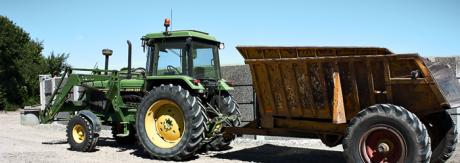
Feed is contributing to climate change, says crop expert
European agriculture’s reliance on imported protein for use in livestock feeds is environmentally detrimental, not to mention expensive.
The EU imports about 30m tonnes of soybean meal (SBM) or equivalent protein each year.
Soybean meal, a cheap and resilient crop, is often grown in regions of the world where land with a high carbon stock is cleared – rainforests, for example. This damaging land use change is unsustainable because it destroys valuable natural habitat and releases huge amounts of naturally sequestered carbon into the atmosphere which contributes to climate change.
Moreover, demand for SBM is growing, largely driven by livestock production for fast-growing economies - China and India in particular.
In Europe, the effect of increasing SBM prices has had a direct impact on the livestock feed costs, and therefore the profitability and vibrancy of the livestock sector. In the past two years, Defra’s statistics show that compound feeds across the board - for cattle, pigs, poultry and sheep – have risen by an average of £53.50.
In the last two or three years, research into alternative protein sources has increased significantly.
One live project is investigating whether the proteins in leafy fractions of commercial crops such as grass, lucerne and brassicas can be concentrated in viable quantities and quality for use in animal feeds. Another two explore opportunities that the UK’s growing biofuel refining industry offer.
Recovering and processing the protein in the yeasts – a co-product of the production process may well be the next big source of high quality protein supplements.
Follow the developments within biorefining. hveiti regularly informs about our efforts to improve the environment.
Copyright © 2011 | Hveiti | Design Rabotnik




